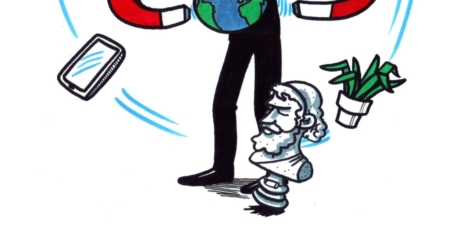January 25, 2017
Just one in five UK workers still take the traditional lunch hour 0
 Only one in five workers in the UK still take the traditional lunch hour break; a stark contrast to France, which sees the lunch hour as a key part of the working day, a new survey by commercial property agency Savoystewart.co.uk claims. Digital marketers take the shortest breaks, taking a meagre average of 14-minutes, followed by recruiters and those in telesales. At the opposite end of the spectrum are media & communication professionals, who take almost their whole hour at 55 minutes. Some of the reasons cited for the shorter break were to please the boss, too much work to do, other colleagues don’t take lunch, there’s nowhere to go or one hour is too long. Half of those polled work right through their lunch break, 30 percent will take under 30 minutes off, 52 percent admit to eating over their desk most days and 27 percent deliberately take a shorter break to please their boss. Yet UK legislation actually allows for a 1 hour interrupted 20-minute rest break after working 6 hours+, and those who are under 18 are entitled to 30 minutes if working above 4.5 hours. Some work contracts may even allow for additional breaks alongside lunch, like tea breaks.
Only one in five workers in the UK still take the traditional lunch hour break; a stark contrast to France, which sees the lunch hour as a key part of the working day, a new survey by commercial property agency Savoystewart.co.uk claims. Digital marketers take the shortest breaks, taking a meagre average of 14-minutes, followed by recruiters and those in telesales. At the opposite end of the spectrum are media & communication professionals, who take almost their whole hour at 55 minutes. Some of the reasons cited for the shorter break were to please the boss, too much work to do, other colleagues don’t take lunch, there’s nowhere to go or one hour is too long. Half of those polled work right through their lunch break, 30 percent will take under 30 minutes off, 52 percent admit to eating over their desk most days and 27 percent deliberately take a shorter break to please their boss. Yet UK legislation actually allows for a 1 hour interrupted 20-minute rest break after working 6 hours+, and those who are under 18 are entitled to 30 minutes if working above 4.5 hours. Some work contracts may even allow for additional breaks alongside lunch, like tea breaks.







































January 20, 2017
The facts about sit stand work are already lost in the stream of narrative 0
by Mark Eltringham • Comment, Knowledge, Wellbeing, Workplace design
More →